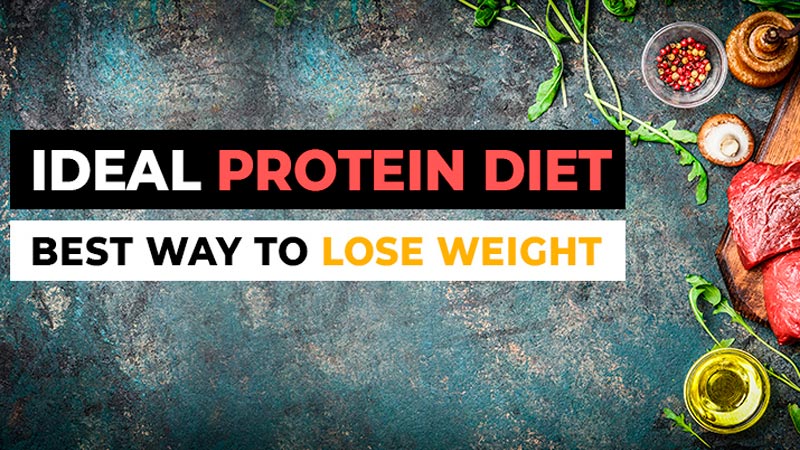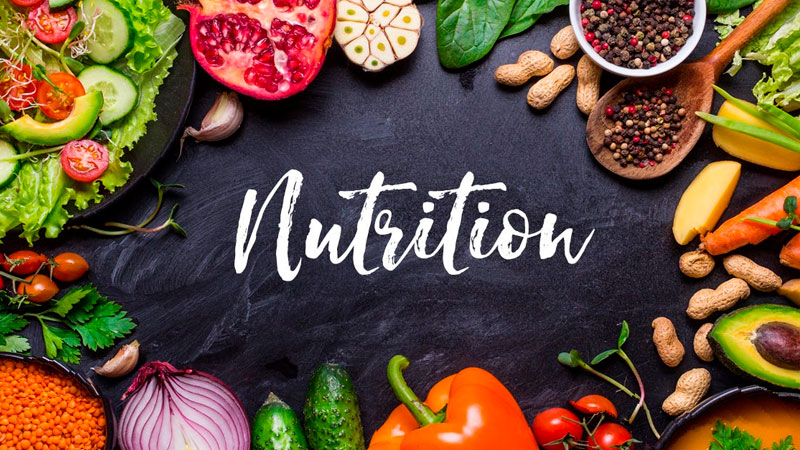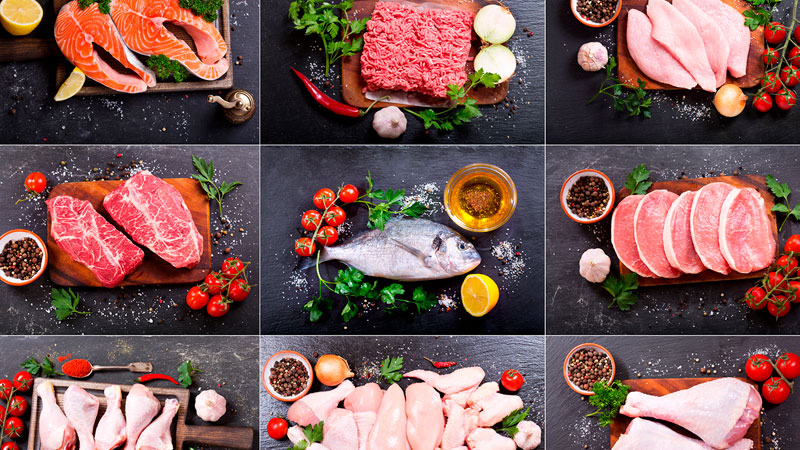The Ideal Protein diet is a low-carbohydrate, high-protein diet that aims to promote weight loss. This diet is designed to put the body in a state of ketosis, where it burns fat for energy instead of carbohydrates.
Table of Contents
The diet involves consuming a specific amount of protein, vegetables, and supplements each day, while limiting carbohydrates and fats.
The Ideal Protein diet was developed by French physician Dr. Tran Tien Chanh in the 1990s. It has gained popularity in recent years as a way to lose weight quickly and effectively. The diet is based on the principle that by reducing carbohydrate intake, the body will burn stored fat for energy, leading to weight loss.
The Ideal Protein diet is a medically supervised diet that is typically followed for several weeks or months. It is designed to help people lose weight quickly, while also providing them with the necessary nutrients to maintain their health. While the diet has been shown to be effective for weight loss, it may not be suitable for everyone, and it is important to consult a healthcare professional before starting any new diet or exercise program.
What is the Ideal Protein Diet?
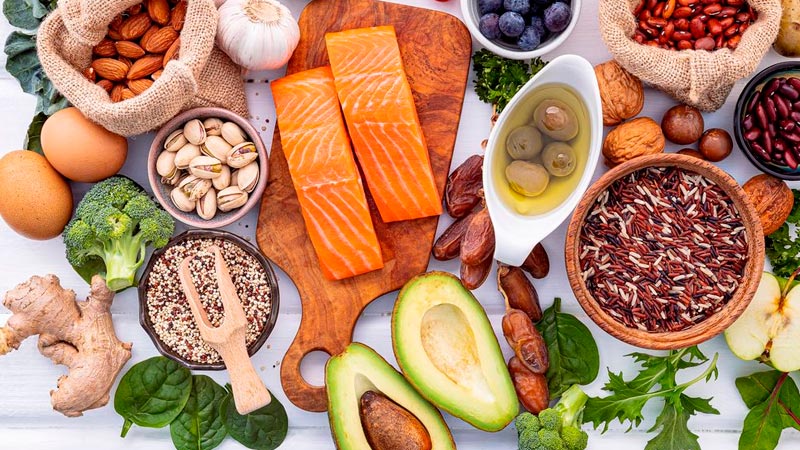
The Ideal Protein Diet is a low-carbohydrate, high-protein diet that aims to help individuals lose weight quickly and effectively. It was developed by Dr. Tran Tien Chanh, a French physician, in the early 2000s, and has since gained popularity around the world.
The diet consists of four phases, each with its own set of guidelines and restrictions. In the first phase, also known as the "Weight Loss" phase, individuals consume a maximum of 20 grams of carbohydrates per day and focus on consuming high-quality protein sources, such as lean meats, fish, and tofu.
In the second phase, known as the "Stabilization" phase, individuals gradually increase their carbohydrate intake while continuing to consume protein-rich foods. The third phase, "Consolidation," involves further increasing carbohydrate intake and reintroducing certain foods that were restricted in earlier phases.
The final phase, "Maintenance," is designed to help individuals maintain their weight loss and healthy eating habits for the long-term. Throughout the diet, individuals are encouraged to consume Ideal Protein products, which are specially formulated to provide high-quality protein and other essential nutrients while minimizing carbohydrate intake.
Overall, the Ideal Protein Diet is a structured, low-carbohydrate diet that emphasizes high-quality protein sources and encourages healthy eating habits for long-term weight management.
Benefits of the Ideal Protein Diet
Weight Loss
The Ideal Protein Diet is a low-carbohydrate, high-protein diet that is designed to promote weight loss. This diet is effective because it restricts carbohydrates and calories, which forces the body to burn fat for energy. The high protein content of the diet also helps to preserve muscle mass while the body is losing weight. Studies have shown that people who follow the Ideal Protein Diet lose more weight than those who follow a low-fat diet.
Improved Health Markers
In addition to weight loss, the Ideal Protein Diet has been shown to improve several health markers. For example, it can lower blood pressure, improve blood sugar control, and reduce cholesterol levels. This is because the diet is designed to promote the consumption of nutrient-dense foods, such as lean proteins, vegetables, and healthy fats. These foods provide the body with essential nutrients, while also reducing inflammation and oxidative stress.
Sustainable Eating Habits
The Ideal Protein Diet is designed to be a sustainable eating plan. It emphasizes the consumption of whole, nutrient-dense foods, which can help people develop healthy eating habits that last a lifetime. Additionally, the diet includes a variety of foods, which can help people avoid boredom and stick to the plan long-term. The diet also includes a maintenance phase, which helps people transition to a healthy, balanced diet once they have reached their weight loss goals.
Overall, the Ideal Protein Diet is an effective and sustainable way to lose weight and improve health markers. It emphasizes the consumption of whole, nutrient-dense foods, which can help people develop healthy eating habits that last a lifetime.
How Does the Ideal Protein Diet Work?
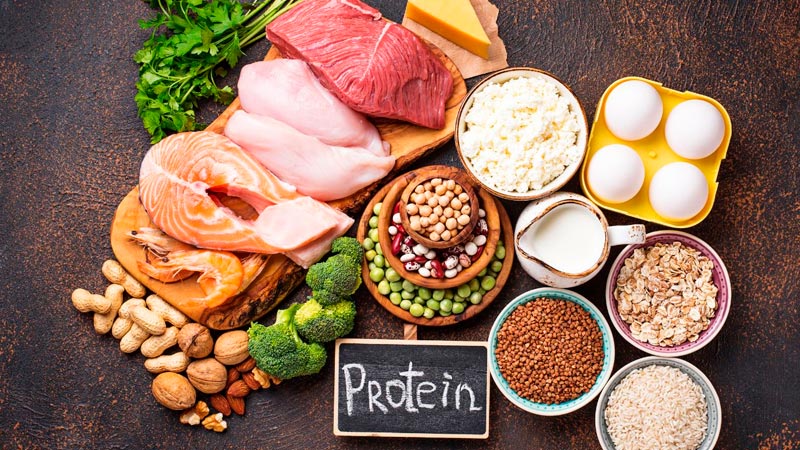
Phases of the Diet
The Ideal Protein Diet is a low-carbohydrate, high-protein diet that is designed to promote weight loss. The diet is divided into four phases, each of which has a specific goal and set of guidelines.
The first phase is the most restrictive and lasts for two weeks. During this phase, the dieter is limited to consuming only Ideal Protein products, which are high in protein and low in carbohydrates. The goal of this phase is to induce a state of ketosis, in which the body burns fat for fuel instead of carbohydrates.
The second phase lasts until the dieter reaches their weight loss goal. During this phase, the dieter begins to reintroduce whole foods back into their diet, while still consuming Ideal Protein products. The goal of this phase is to continue weight loss while transitioning to a more sustainable diet.
The third phase is the stabilization phase, which lasts for two weeks. During this phase, the dieter continues to consume Ideal Protein products, but also begins to reintroduce more whole foods into their diet. The goal of this phase is to stabilize weight loss and establish healthy eating habits.
The fourth and final phase is the maintenance phase, which lasts indefinitely. During this phase, the dieter has reached their weight loss goal and has established a sustainable diet. The goal of this phase is to maintain weight loss and continue healthy eating habits.
Food Choices
The Ideal Protein Diet focuses on high-protein, low-carbohydrate foods. The diet emphasizes lean protein sources such as chicken, fish, and lean beef, as well as non-starchy vegetables such as broccoli, spinach, and kale.
Foods that are high in carbohydrates, such as bread, pasta, and rice, are limited or eliminated from the diet. The diet also limits the consumption of fruits and dairy products, as these are also high in carbohydrates.
The Ideal Protein Diet provides a structured meal plan that is designed to ensure that dieters are consuming the appropriate amount of protein and carbohydrates. The diet also provides support and coaching to help dieters achieve their weight loss goals and establish healthy eating habits.
Potential Side Effects
Nutrient Deficiencies
The Ideal Protein Diet is a low-carb, high-protein diet that restricts certain food groups, including fruits, vegetables, and whole grains. As a result, it may lead to nutrient deficiencies if not followed properly.
One of the most common nutrient deficiencies associated with the Ideal Protein Diet is fiber. Since the diet restricts carbohydrates, which are a primary source of fiber, individuals may experience constipation, bloating, and other digestive issues.
Another potential nutrient deficiency is vitamin C, which is primarily found in fruits and vegetables. Without adequate intake of these foods, individuals may be at risk for scurvy, a condition characterized by fatigue, weakness, and gum disease.
Ketosis Side Effects
The Ideal Protein Diet is designed to induce a state of ketosis, in which the body burns fat for fuel instead of carbohydrates. While this can lead to rapid weight loss, it may also cause some negative side effects.
One common side effect of ketosis is bad breath, also known as "ketone breath." This is caused by the release of ketones, which have a distinct odor.
Another potential side effect is dehydration. Since the diet restricts carbohydrates, individuals may experience a decrease in water weight, leading to dehydration if they do not drink enough fluids.
In addition, some individuals may experience fatigue, dizziness, and headaches during the first few days of the diet as their body adjusts to the new way of eating.
Overall, while the Ideal Protein Diet can be an effective way to lose weight, it is important to be aware of the potential side effects and to speak with a healthcare provider before starting the diet.
Ideal Protein Diet vs. Other Diets
Keto Diet
The keto diet is a low-carb, high-fat diet that focuses on putting the body into a state of ketosis, where it burns fat for fuel instead of glucose. While both the keto diet and the ideal protein diet are low-carb, the ideal protein diet is higher in protein and lower in fat. The keto diet may be more difficult to stick to due to its strict limitations on carb intake, and it may not be suitable for everyone, especially those with certain medical conditions.
Atkins Diet
The Atkins diet is another low-carb diet that emphasizes protein and fat intake. However, unlike the ideal protein diet, the Atkins diet allows for more fat and fewer restrictions on food choices. This may make the Atkins diet easier to follow, but it may also lead to overconsumption of unhealthy fats. The ideal protein diet has a more balanced approach to macronutrient intake and encourages the consumption of lean protein sources.
Low-Calorie Diets
Low-calorie diets are often used for weight loss, but they can be difficult to sustain due to feelings of hunger and deprivation. The ideal protein diet, on the other hand, provides a higher protein intake to help reduce feelings of hunger and preserve muscle mass during weight loss. Additionally, the ideal protein diet provides a structured plan and support system to help individuals achieve their weight loss goals.
In summary, the ideal protein diet differs from other diets in its emphasis on high protein intake, balanced macronutrient ratios, and structured approach to weight loss. While other diets may have their benefits, the ideal protein diet offers a unique approach that may be more sustainable and effective for some individuals.
Criticism and Controversies
Despite its popularity, the Ideal Protein diet has faced criticism and controversies from some experts in the medical and nutritional fields.
One of the main criticisms of the Ideal Protein diet is that it is a highly restrictive diet that eliminates entire food groups, such as fruits and grains. Critics argue that such a diet can lead to nutrient deficiencies and may not be sustainable in the long term.
Another concern is the high cost of the Ideal Protein diet. The program requires participants to purchase pre-packaged meals and supplements, which can be expensive and may not be affordable for everyone.
Additionally, some experts have raised concerns about the lack of scientific evidence supporting the effectiveness of the Ideal Protein diet. While some studies have shown positive results, more research is needed to determine the long-term effects of the diet on weight loss and overall health.
There have also been controversies surrounding the marketing and promotion of the Ideal Protein diet. Some critics have accused the company of making false or exaggerated claims about the diet's benefits and effectiveness.
Overall, while the Ideal Protein diet may be effective for some individuals, it is important to consider the potential risks and limitations of the diet before starting it. It is recommended to consult with a healthcare professional before embarking on any weight loss program.
Conclusion
The Ideal Protein diet is a low-carbohydrate, high-protein diet that has shown promising results in weight loss and improved health outcomes. By limiting carbohydrate intake and increasing protein intake, the body is forced to use stored fat for energy, resulting in weight loss.
However, it is important to note that the Ideal Protein diet is not suitable for everyone. Pregnant or nursing women, individuals with kidney disease, and those with a history of eating disorders should avoid this diet. Additionally, the long-term effects of the Ideal Protein diet are not yet fully understood and more research is needed to determine its safety and effectiveness.
Overall, the Ideal Protein diet can be a useful tool for weight loss and improved health outcomes when used under the guidance of a healthcare professional. As with any diet, it is important to maintain a balanced and varied diet to ensure adequate nutrient intake.
Eat well, live better!
